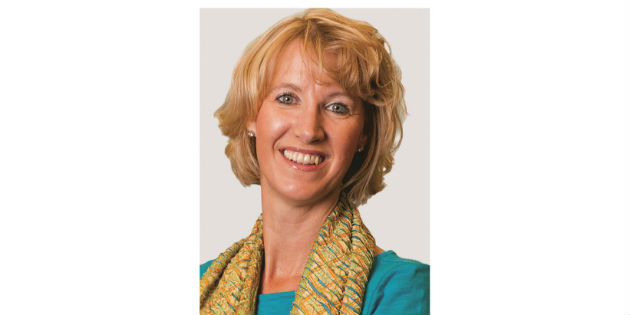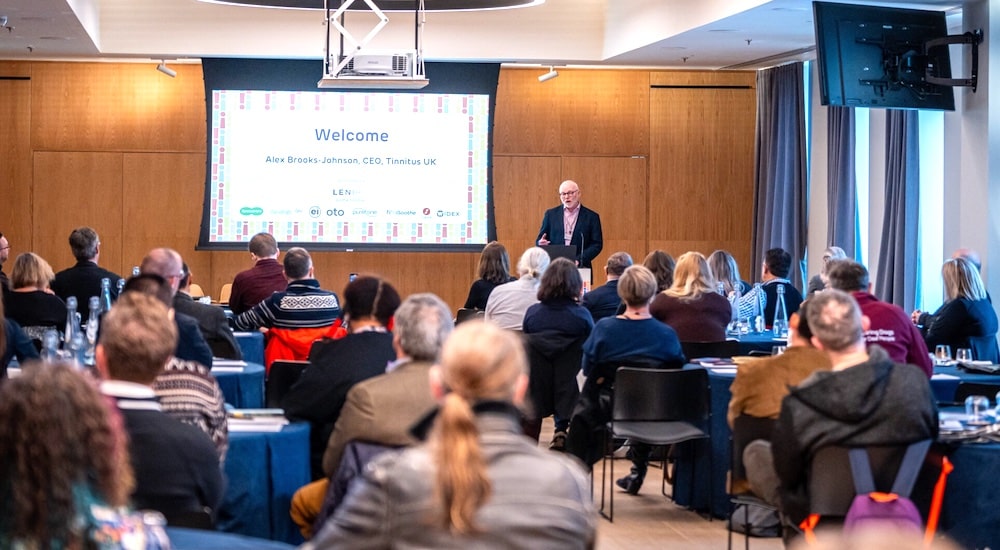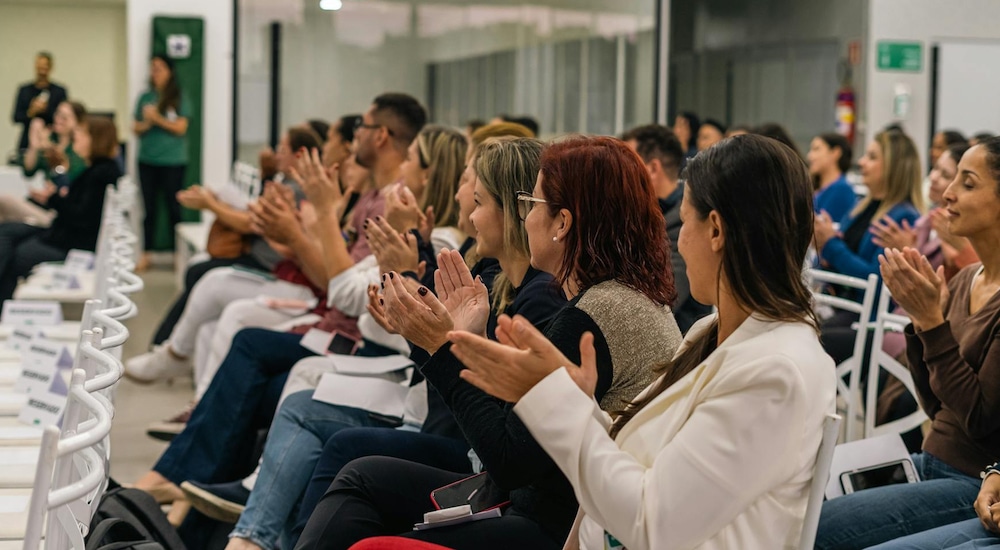"Lead like a girl", says Tacy M Byham, PhD
AAA2018
Tacy M. Byham, PhD was giving theAmerican Academy of AudiologyFoundation lecture at this year’ AAAConference in Nashville, with the title,‘Lead like a Girl’.

Byham providesan insight into the topics she willbe covering during the three-hourpresentation on the main stage andanswers some questions about issuessuch as leadership and confidence inwomen.
“Doing things ‘like a girl’ has alwaysbeen a playground insult, butit represents a much deeperproblem that anything womendo is weak, silly, or otherwisenot worthy of respect. I don’tthink that we realize just how problematic this conceptis for women long-term as they feel like they either haveto try to act like men to get respect, or that acting like awoman means deferring to men.
“In my speech, I talk about the issues facing womentoday, and my own personal journey to finding myvoice as a leader. I also draw on research to debunkmany of the myths that keep women out of leadership,and give women practical advice, or what I call “powermoves,” to advance their careers. Topics include: Findingyour strength and the leader within you; exploring theconfidence gap; identifying your personal wake-up call;and super power your network.
“Last but not least, I want to make it clear that this sessionis for men, too. Many men really do want to work in agender equitable workplace, because they benefit fromit, too. But men often don’t know how to go about beingan ally to women in an appropriate way. That’s why I alsocover actions that men can take to be allies to women. So this speech is not just for women, but anyone whowants to unleash the potential of women, including maleallies, mentors, leaders, and even parents.”
Audio Infos: You published a blog post called#LeadLikeAGirl to coincide with International Women’sDay on 8th March; how do we, as a society, unleashthe potential of women?
Tacy M Byham: There’s no simple answer here. The first step ishelping individual women recognize their strengths, andovercome their own internal barriers that may be holdingthem back, a lot of which I address in my speech. Butthere is a much bigger aspect of removing the externalbarriers that are standing in women’s way, which requiresa more cohesive approach.
The key to success is reframing the issue away from being“just a women’s issue” or a matter of achieving socialjustice. Instead, we need to focus on the fact that this isa business issue that affects everyone. Study after studyshows that companies with more women nearly alwaysperform better financially. For example, our recent GlobalLeadership Forecast 2018, produced in partnership withThe Conference Board and EY, showed that companies change. It was a huge wake-up call to me that I washolding myself back by not declaring what I wanted.Of course, you still must put in the hard work, but thenyou’ve got to act as your own marketer to declare thatyou are interested in higher positions.
AI: Is there any element of your working life youenjoy more than others?
TMB: While a lot of my work these days is public speaking,I used to spend my time as a facilitator working withclient groups helping their new leaders step-up to thechallenges of their role. We would work together to helpthem hone the critical skills of involvement, empathy, andhow to provide support to their team without taking over.The best part was hearing later that the communicationskills they acquired at the office via our sessions hadbroader application and could help them upgrade theirconversations back at home. For example, childrennot doing their homework or not sharing householdresponsibilities; teenagers coming home late; spouseshaving issues with their in-laws. These are real problemsfaced everyday around the world and, in general, peoplehave trouble coping with them. And, if not handled well,the results can be damaging — stress-related healthconditions, general unhappiness, and even family breakups.As we increasingly talk about work-life balance andbringing one’s whole self to work, we are realizing thatwe can’t compartmentalize our “professional” self fromour “personal” self. So, what I really enjoy is that whatI do at work is not only helping people in their careers,but in their personal relationships.

AI: What inspires you on a day-to-day basis?
TMB: DDI was founded on innovations. Our founderinvented the behavioural interviewing process. So,we are responsible for those questions that start byasking “tell me about a time when…” and you collectan example of the candidate’s behaviour in the formof a STAR (situation, task, action and result). We alsoinvented behaviour-modelling, the proven method tohelp leaders learn and succeed in their new roles.It’s inspiring to see our new innovations in training andassessments. I was in a session last week where wewere reimagining the classroom learning approach withteam competitions via cell phones at the tables. Andthen I saw a demo for a leader giving feedback to acandidate using virtual reality. Cool and inspiring stuff!
AI: What are your goals in life; have you achievedthem, or are there still more to tick off?
TMB: I’ve always been curious and a high-achiever.I have stepped through my career and made severalturns into unknown areas. It took courage, but thechanges were the areas of greatest growth.My thought is that there is always more to tick off.Presently, I’d like to work in yoga or some sort-ofmeditation time. I am high energy and am always overscheduled and on-the-go. I need to find some downtimefor reflection. I did this recently when flying homefrom a trip. The airplane announcement came over theairwaves asking us to shut-down our laptops for thelanding. I stopped and instead of reading a magazine, Igave myself some head-space. Well, the ideas startingflowing and I later wrote a heartfelt communication tothe company. I need to find my way to do this more often.
AI: What advice would you give yourself if you wereleaving college tomorrow?
TMB: I’ve actually been thinking about this a lot latelyas I have a son who is heading off to college soon. As Ilook at him, I think about how incredibly difficult it is forkids in their late teens and even early 20s —boys andgirls— to decide what they want to do with their lives. Istill don’t know what I want to do with the rest of my life!Over the years, I’ve seen a lot of people who feel stuckin their careers, especially women. When I graduatedcollege, I had a degree in math and computer science,and I thought I knew exactly what I wanted to do. Ijoined a tech company, and just hated it. I stuck it outfor a while, thinking that this was the path I had chosen.Eventually, I realized that I could change course, and Iwent back for my Ph.D. in industrial-organizationalpsychology. The advice that I would go back and givemyself is to never think that you are stuck on a particularpath. No matter what stage of life you are in, you cancontinue to learn, grow, and reinvent yourself. You willmiss 100% of the chances you don’t take!
About Tacy M Byham, PhD
Tacy M. Byham, Ph.D. is chief executive officerof global leadership company DDI, leading morethan 1,000 employees in 26 countries. Notably,women comprise 53% of DDI’s leadership bench.A nationally recognised speaker and author inthe field of leadership, Tacy co-authored YourFirst Leadership Job: How Catalyst Leaders BringOut the Best in Others with Richard Wellins,available in five languages. A staunch supporterof women’s empowerment and gender equality,Tacy served as the inaugural keynote speaker forthe Women in Technology conference, sponsoredby HR Technology (2016) and has delivered her#LeadLikeAGirl speech at many conferencesand organizations worldwide. She was also afoundational member of The Conference Board’sLeadership Council on Advancing Women in theWorkplace which is leading a systemic approachto gender parity and creating a ripple of growthand change.
Read this article on the AAA special AWN issue (flipbook):
And follow the congress onTwitter @Audioworldnews.


